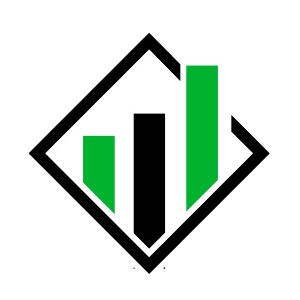I. Introduction: Why Sell Online in Canada
Canada is the largest G7 country with a growing population of 37M people. Canada runs a developed market-driven economy. In addition, Canada is the biggest trading partner of the United States, the biggest economy in the world.
Selling online in Canada is the goal of many e-commerce sellers around the globe. The Canadian economy is open and well-adapted to e-commerce businesses. Moreover, Canadian consumers have healthy disposable income levels.
If you are planning to start selling and shipping your products to your Canadian customers, you will need to know your tax consequences.
E-commerce sellers, both from inside and outside of Canada, need to be aware of two types of tax implications when they sell and ship products to Canada: Sales Tax Implications and Income Tax Implications.
The Canadian tax policies are administered by the Canada Revenue Agency (CRA). The agency is enforcing the tax laws and collecting sales and income taxes on behalf of the Canadian government.
II. Canadian Sales Tax Implications for Online E-commerce Sellers
Similar to other countries, Canada imposes sales taxes on products shipped to Canadian consumers. The sales taxes are levied on a federal and provincial level. Canadian sales tax system is a mix of federal and provincial tax jurisdictions.
Some provinces have harmonized their sales taxes with the federal sales taxes (hence the name, HST – Harmonized Sales Taxes).
Some provinces do not impose any additional provincial sales taxes (Alberta).
Other provinces impose additional provincial sales taxes (Manitoba – Retails Sales Tax (RST); Quebec – Quebec Sales Tax (QST); Brtish Columbia and Saskatchewan – Provincial Sales Tax (PST)).
In order to understand what sales taxes to collect, you will need to know the product, place of shipment and place of destination (we go over these details in depth in this article).
In general, an e-commerce company will need to register to collect sales taxes from Canadian buyers if all of these are true:
- You are deemed to carry on business in Canada
- You are selling taxable supplies
- You are not a small business supplier
Carrying on Business in Canada
The concept of carrying business in Canada is driven by the case facts of each e-commerce seller. They are no specific rules that define it. In simple terms, if you are undertaking business activity of any kind on Canadian soil for a profit, you are deemed to carry on a business in Canada.
For example, if you use Amazon FBA warehouses or any other 3rd Party Logistic (3PL) then you are carrying on a business in Canada.
If you are using local advertising to solicit your products, you are carrying on a business in Canada.
The threshold, as you can see, is very low.
However, the business activity must be done regularly and continuously. Sporadic shipments of products are not considered regular and continuous business activity.
Selling Taxable Supplies
Most of the goods and services in Canada are considered to be taxable supplies. Exempt supplies do not include any physical products (only specific services provided within Canada). So, e-commerce sellers who sell into Canada online are automatically selling taxable supplies.
Small Business Supplier
A small business supplier is defined as a business with worldwide taxable sales of more than $30,000 CAD in the last or last four (4) consecutive quarters.
If your sales were less than $30,000 CAD in the last or last four (4) consecutive quarters, your registration is optional.
Voluntary Registration
You can choose to register to collect and remit Canadian sales taxes.
The reason why some sellers may choose to register is when they provide zero-rated taxable supplies to Canadian consumers. Those sellers do not have to charge sales taxes on zero-rated supplies like basic groceries, agricultural products, prescription drugs, and certain medical devices.
However, if they register, they will be able to obtain a credit for sales taxes that they paid on Canadian products or services that they used to generate Canadian business income. The sales taxes that you can claim back are called Input Tax Credits (ITC).
For example, an e-commerce seller is selling hearing aids to Canadian customers and is a small business supplier. They are paying Canadian sales taxes of $3,000 for advertising and warehouse services. If they register they will be entitled to a refund from the Canadian government for $3,000 of Input Tax Credits.
Those situations are rare and are usually determined by the type of product and services you sell in Canada.
Business Number
If your e-commerce business is required to register (optionally or mandatorily) you will need to contact the Canada Revenue Agency and request a Business Number. Contact the assigned tax service office for your country to request a business number.
The Business Number will be used for all your communication with the CRA.
Security Deposit Requirements
If you do not have a permanent establishment in Canada, the CRA will request a security deposit when you will be registering for a Business Number if you estimate that you will be selling more than $100,000 annually and your net sales taxes will be more than $3,000.
The amount of the security deposit is 50% of the estimated net sales tax on expected annual sales in the next 12 months.
Most e-commerce business owners will not be required to provide a security deposit since their sales will be below this threshold. But some bigger e-commerce sellers will be subject to that requirement.
Filing Frequency and Due Dates
Your business will be assigned a filing frequency depending on the volume of taxable sales made in Canada.
- $1,5M or less: Annual – return due three (3) months after the end of fiscal year-end
- $1.5M – $6M: Quarterly – return due by the end of next month
- $6M and over: Monthly – return due by the end of next month
If you are registered for a business number but have not collected or spent any sales taxes in Canada, you are still expected to file a nil return.
If you don’t file, the Canada Revenue Agency may issue a notional assessment based on what they believe you should have filed for your business. Your business will be liable for that amount until an actual return is filed.
III. Canadian Income Tax Implications for Online E-commerce Sellers
In general, your business is considered to be a resident for Canadian tax purposes if:
- The corporation was incorporated in Canada.
- The mind and management of the corporation are in Canada (i.e., directors and shareholders live in Canada).
- The company has a permanent establishment in Canada (i.e., a fixed place of business).
Canadian Controlled Private Corporations (CCPC) will be subject to a low 14-17% rate on the first $500,000 of income.
The combined federal and provincial tax rates for non-resident companies will vary from 25-31% regardless of the amount of income. However, your net income may be protected by an applicable tax treaty between Canada and your country of residence.
Most tax treaties will absolve companies from paying Canadian taxes if the corporation does not have a permanent establishment (i.e., fixed place of business) in Canada.
Required Tax Returns
If you are a foreign corporation that had carried on a business in Canada, you will be required to file a T2 tax return along with Schedules 91 and 97. If you are claiming a protection under one of the treaties you will need to specify specific sections of the treaty on those schedules.
Non-resident sole proprietorships and partnerships will have to apply for an Individual Tax Number to file their business income. Forms T1 and T2125 will need to be completed and submitted to the CRA by June 15th of every year.
U.S. – Canada Tax Treaty
E-commerce sellers who do business in one of the two countries and do not have a permanent establishment in Canada or in the U.S. are subject to the protection by the U.S. – Canada Tax Treaty.
Canadian e-commerce corporations selling in the U.S. with no permanent establishment will be filing forms 1120-F and 8833. Corporations will need an Employer Identification Number (EIN) from the Internal Revenue Service (IRS) in order to file their returns.
Sole proprietorships and partnerships will be filing forms 1040NR and 8833. These individuals will need an Employer Identification Number and Individual Taxpayer Identification Number (ITIN) in order to be able to file their returns.
On the north side of the border, U.S. e-commerce corporations selling in Canada will be filing forms T2 and Schedules 91 & 97. A corporation will need a Business Number (BN) in order to file their returns with the Canada Revenue Agency (CRA).
Note that LLCs are treated as corporations by the CRA.
U.S. sole proprietorships and partnerships will need to file T1 and T2125 for their income tax returns. In order to be able to file, these individuals will need to obtain an Individual Tax Number (ITN) from the CRA.
Late Filing Penalty
The corporate tax return from non-resident corporations should be filed after six (6) month from the corporation’s fiscal year-end.
Regardless, of the amount of tax owed, a foreign corporation will be subject to late filing penalty if a return is filed late. The maximum penalty is $2,500.
Keeping Books and Records
By law, non-residents are obligated to keep books and records in Canada for six (6) years from the end of the calendar year to which they refer.
IV. Conclusion: Selling Online in Canada
E-commerce business owners who are selling online in other countries are essentially operating a multinational company. The more your company gets involved in the country of destination, the more tax obligations and complexities arise.
What we have gone over here describes basic rules of e-commerce taxation for Canadian and non-Canadian sellers. Your situation may be different, so consult with competent tax professionals of your choice. This article is for general information purposes only.
Our recommendation is to fully understand your business objectives in Canada first. Once you are clear on how, to whom and what you are selling, things will become much clearer from the tax perspective as well.






Hi Boris,
i’ve started my E-commerce store to sell products worldwide ,with local business license , registered my business in AB, CANADA,got the BN # from CRA , will i be charging Tax from the customers who will purchase products from my website ?